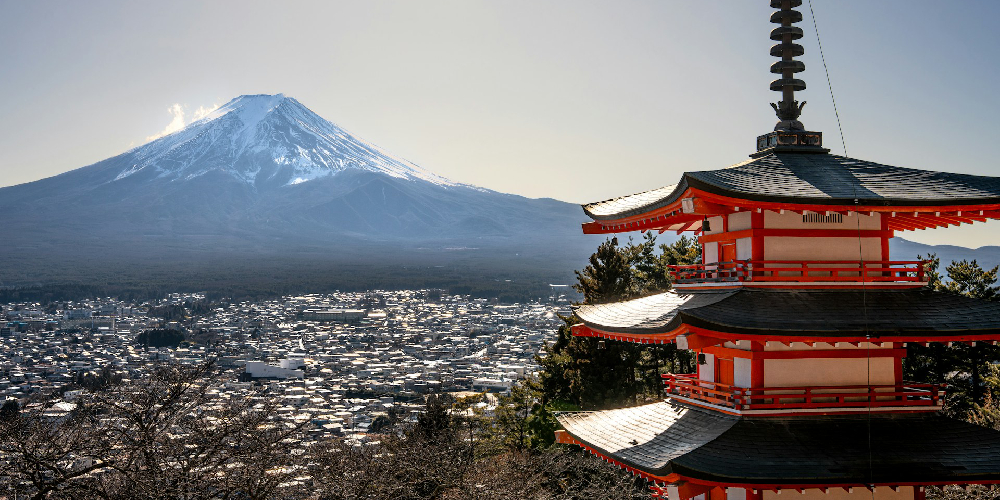Study Destinations

Japan stands out as an exceptional destination for international students due to its diverse landscape and top-tier educational system. Renowned for its blend of tradition and innovation, Japan offers a dynamic environment with advanced technology and educational opportunities. The country's welcoming stance towards international students further enhances its appeal, supported by proactive initiatives from the Japanese government to attract global talent.
Japan's economy is rapidly advancing, leading to significant developments in its social systems. The educational sector has particularly benefited from streamlined and contemporary reforms, offering foreign students a simplified and accessible higher education experience. With a goal to host 300,000 international students by 2020, Japan has revamped its application processes across public and private institutions, providing a diverse array of courses in various disciplines.
Japan boasts over 700 higher education institutions, predominantly private. In the 2022 QS World University Rankings, 16 Japanese universities feature among the top 500 globally. The University of Tokyo leads at 23rd place, followed by Kyoto University at 33rd. Five of these institutions rank within the top 100 worldwide. Beyond academia, Japan's rich cultural heritage attracts both tourists and students, offering diverse exploration opportunities that cater to every interest.
Japan, an island nation in East Asia located in the Pacific Ocean, is often referred to as the "Land of the Rising Sun." It ranks as the tenth most populous country globally, with approximately 126.7 million inhabitants. Japan boasts one of the world's most highly educated populations and a workforce known for its high skill levels. Since relinquishing its right to declare war in 1947 after World War II, Japan maintains a modern military primarily for self-defense and peacekeeping purposes. Its closest neighbors include China, North Korea, South Korea, and Russia. Japan is an archipelago comprising around 7,000 islands, renowned for its beauty and iconic landmarks like Mount Fuji. The country experiences diverse climates across its varied geography, with warm summers and cold winters marking its distinct four seasons.
Japan's culture uniquely blends ancient traditions with modern Western influences. Its rich cultural tapestry includes ancient woodblock prints, centuries-old Buddhist monasteries, and renowned artistic expressions like distinctive animation techniques, poetry, dance, and music, celebrated worldwide.
Japan's official currency is the(¥ yen).
Tuition costs at Japanese universities are relatively affordable compared to those in the UK and the US. While private institutions set their own fees, top universities may not always be the most expensive. On average, students can expect to budget between 500,000 and 1,000,000 yen per academic year. Additionally, there are entry and examination fees to consider, typically ranging from ¥17,000 to ¥30,000 for exams and approximately ¥280,000 for admission fees. With increased government initiatives to attract foreign students, such as the Monbukagakusho scholarship, there are now more scholarship opportunities available than ever before.
The cost of living in Japan varies depending on your choice of residence. Larger cities generally incur higher expenses compared to smaller towns. On average, budget around ¥90,000 per month, covering accommodation, food, and transportation. Additionally, all international students are required to enroll in the National Health Insurance program, costing approximately ¥23,500 annually.
International students can work part-time during their studies without needing a separate work permit, provided they have a study permit. You are allowed to work up to 20 hours per week during the academic year. However, it's important not to rely on part-time work to cover all your expenses, as it is meant to supplement your budget rather than fund your entire education.
A student visa is necessary for international students wishing to study in Japan. Before applying for a visa, you must obtain a Certificate of Eligibility. Your chosen Japanese university will handle this process on your behalf. Once issued, you can proceed with your visa application at the Japanese embassy or consulate in your home country. Essential documents for the visa application include the eligibility certificate, a copy thereof, a valid passport, a completed application form, and a recent passport-sized photograph.
While studying in Japan, you can work, but you'll need to obtain a "Permission to Engage in Activity Other than that Permitted by the Status of Residence Previously Granted." This permission can be applied for at an immigration office upon arrival in Japan. Typically, it allows students to work up to 28 hours per week during the academic year and up to eight hours per day during designated vacation periods.

Japanese serves as Japan's official language, with no other official languages recognized. However, the country offers numerous English-language courses aimed at attracting more international students. If you opt to study in a language other than your native one, you may need to demonstrate proficiency. Often, institutions provide language courses to help students meet required standards. It's beneficial to learn Japanese extensively, even if your program is in English. Engaging in conversations with locals and fellow students is an effective way to practice. Proficiency in another language is a valuable asset for your CV/resume!
Tokyo, also known as Tokyo Metropolis, has been Japan's capital since 1869. Formerly called Edo until 1868, Tokyo is home to a population of 13.9 million. If it were a nation, Tokyo's economy would rank eighth in the world. Tokyo hosted the 2020 Summer Olympics, Summer Paralympics, and the 2019 Rugby World Cup (both held in 2021 due to the COVID-19 pandemic). The city boasts numerous universities, junior colleges, and vocational schools, including prestigious institutions like Keio University, Tokyo Institute of Technology, and the University of Tokyo. Additionally, Tokyo is home to the United Nations University, serving as the UN's academic and research arm.